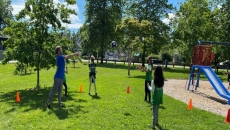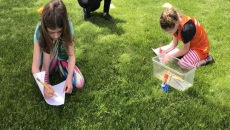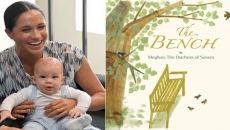Committed to empowering, supporting, and connecting the autism community in the province, AutismBC is a non-profit that encourages the inclusion and acceptance of the entire autism community.
1 in 40 children are diagnosed with Autism Spectrum Disorder in British Columbia, making it a pressing issue in our communities. Best described as a complex neurodevelopmental disorder, autism materializes differently for each person, with persistent challenges in social interaction, speech and nonverbal communication, and restricted/repetitive behaviors. Despite the relatively common presence of the disorder, there is a concerning lack of awareness surrounding it. Due to the lack of understanding, many families only discover the specifics of autism once a child in their family is diagnosed. Such is the story of Kuljit Bains, newest addition to AutismBC’s Board of Directors.

Committed to empowering, supporting, and connecting the autism community in the province, AutismBC is a non-profit that encourages the inclusion and acceptance of the entire autism community. The vision is to create stronger, more diverse communities. Bains’ involvement with AutismBC started from home.
A finance professional and leader at Farm Credit Canada, Bains is a loving wife and doting mother of two sons. Her younger son was diagnosed with autism in his toddler years.
Upon his diagnosis, she signed up with AutismBC, not knowing much about the disorder. Being touched personally, Bains received utmost support and strength from her nears and dears. She articulates, “Especially in the South Asian Community, I noticed a lack of awareness and thankfully things are getting better.” Since the topic of autism may be taboo or stigmatized in the public sphere, the lack of knowledge ends up becoming an obstacle for those with autism and their families.
Moreover, besides the lack of information, there also prevails misinformation about autism. AutismBC’s Executive Director, Julia Boyle, explains, “There are some terrible myths about autism. For example, one myth is that people with autism lack empathy. This is 100% untrue. People with autism experience deep feelings of empathy; they just express it in different ways.” She highlights that autistic people generally express themselves in ways that are different from neurotypical people, but it does not make their feelings any less real. Given that autistic individuals spend most of their day fitting into the world, the broader community should be more accepting and inclusive.
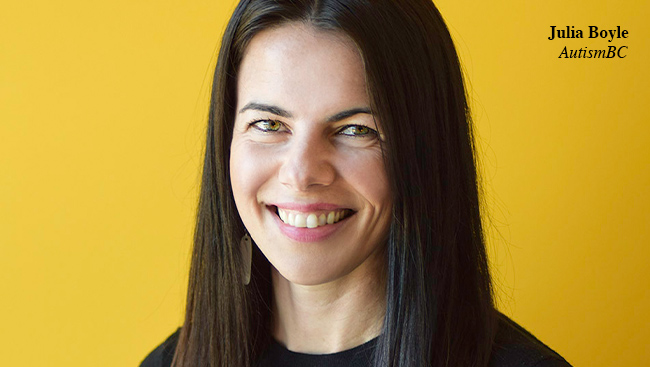
The acceptance and inclusivity should not just be limited to home, but out of the house as well. When it comes to school, autism can be a learning experience for everyone involved, as autistic students may have different academic milestones. As per the Ministry of Education, there are schools in Canada that have full-time support staff available to aid autistic students’ learning through modifications, adaptations, remediation, and accommodations. It is also important that teachers effectively teach all students how their friends with autism may best be communicated with and if there is anything that they do not like. The success of the child weighs big on having the right teacher and a supportive school team.
Be it at school or at home, Bains acknowledges that it can be a new experience for someone to meet a child with autism. She maintains that it helps to be equipped with the right information by asking questions. When around someone with autism, it is important to be patient, treat them like you want to be treated, stay positive, and give them space, respect, and affection. Boyle adds, “An important thing to remember is that if you’ve met one autistic person, you’ve met one autistic person. Everyone on the autism spectrum is unique, just like everyone in the world is unique. Try to remain open to learning and asking questions instead of making assumptions.”
For Bains, the biggest learning through her personal journey has been that it is okay to say no to anything that does not work for her child or family. It can be extremely challenging for parents to navigate through the new social and personal challenges that arise when a child is diagnosed with autism, more so in a world where autism is still not discussed without stigma. Amidst the new dynamics and multiple time commitments, parents must cope with many pressures.
Although Bains has been lucky to have an understanding support system around her, including her employer and family, others may not be so fortunate.
“When caring for a child on the autism spectrum, many parents’ work lives are impacted, with one parent sometimes having to quit their job,” shares the informed board member. In fact, research shows that mothers with autistic children earn significantly less as compared to mothers with children who have no health limitations. Relatively more planning and organization undoubtedly go into ensuring high standards at work, while ensuring parents are around for appointments and school pick-ups and drop-offs.
Aside from the time management, there is also financial pressure. Government funding does help families pay for services that promote skill development for their child – communication, social-emotional, academic and life skills. However, very specific services and therapies qualify for funding; only partial treatment is covered. Most costs must be handled out of pocket.
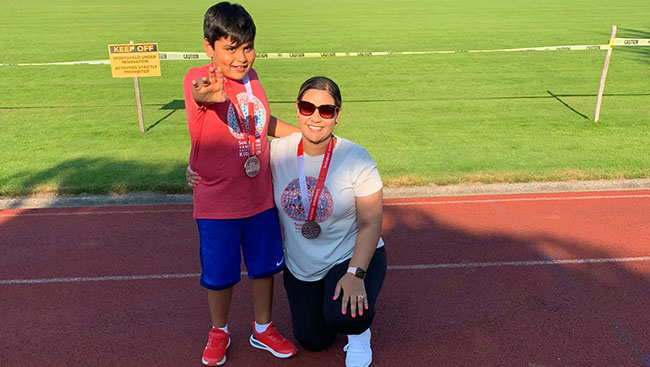
Recently, to enable more families to access resources and support, Bains and her younger son competed in the Scotiabank Marathon. The mother-son duo partook in the Scotiabank Half Marathon & 5K Charity Challenge and accomplished the feat of becoming the marathon’s biggest fundraisers! With such an involved team and supportive family, it is of no surprise that the child is flourishing as a happy, social, and energetic boy. Behind the scenes is also Bains’ and her family’s undying encouragement.
With her decision to join the Board of Directors at AutismBC, Bains aims to use her experiences to help other parents who are going through something similar. Additionally, she hopes to utilize her educational and work experience to help AutismBC in their activities and build awareness. Bains reports that other South Asian moms are especially happy to see diversity representation on the Board, as she is the first South Asian person to sit on the Board.
The passionate advocate sees this rewarding opportunity as a pathway to create awareness and champions AutismBC as a great resource for parents who are new to autism or those looking for support. Boyler elaborates by shining light on the importance of support groups for guidance, “Having a network of other parents that have been where you are will be very helpful as your journey progresses. The beginning is the most challenging part of the journey, but it will get easier. Remember, it’s a marathon, not a sprint, so take it day by day and celebrate every step.”
Evidently, Bains is doing exactly that as she expresses just how proud she is of her son and his success, owed to an amazing Applied Behavior Analysis (ABA) team, encouraging family support, and an inclusive school support team. Bains’ service to the AutismBC Board of Directors only adds to the powerhouse she is, as she continues to serve for a cause that is close to home and close to her heart.



